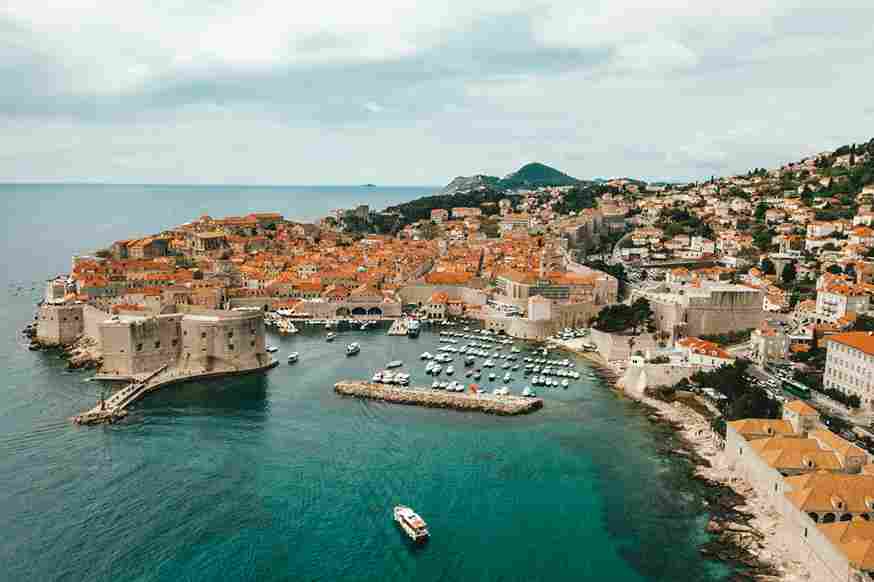
Croatia Travel Guide: Top Attractions, Tips & Booking Options
Explore Croatia
Exploring Croatia: Your Ultimate Adriatic Travel Guide
Croatia: The Adriatic Gem of Europe
Croatia is a stunning Mediterranean destination known for its crystal-clear waters, medieval towns, and breathtaking national parks. From the historic streets of Dubrovnik to the sun-kissed islands of the Dalmatian coast, Croatia offers a perfect blend of culture, adventure, and relaxation. Whether you're exploring ancient ruins, island-hopping, or savoring fresh seafood by the sea, Croatia is a must-visit for history lovers, beachgoers, and nature enthusiasts alike.
Learn More
Frequently Asked Questions: Croatia
Croatia offers unique experiences in every season:
- May–September (Spring & Summer):Best for warm weather, swimming, and island-hopping.
- October–November (Fall):Ideal for fewer crowds, pleasant temperatures, and wine harvests.
- December–February (Winter):Great for Christmas markets and exploring cities without tourists.
- March–April (Spring):Perfect for hiking, sightseeing, and mild weather.
- Dubrovnik:A UNESCO-listed walled city with breathtaking views of the Adriatic Sea.
- Plitvice Lakes National Park:A fairytale-like landscape with cascading waterfalls and turquoise lakes.
- Split & Diocletian’s Palace:A historic city built around a Roman emperor’s palace.
- Hvar Island:A glamorous island known for its beaches, nightlife, and lavender fields.
- Krka National Park:A stunning park with waterfalls and swim-friendly lagoons.
- Zagreb:Croatia’s vibrant capital, known for its museums, street art, and lively markets.
- Rovinj:A picturesque coastal town with Venetian architecture and charming alleys.
- Zadar:Home to the famous Sea Organ and Sun Salutation.
- Korčula:A beautiful island believed to be the birthplace of Marco Polo.
- Pula:A city with one of the best-preserved Roman amphitheaters.
- Mljet National Park:A lush island paradise with saltwater lakes and hiking trails.
- Makarska Riviera:A stunning coastal stretch with crystal-clear waters and dramatic cliffs.
- Peka:A traditional dish of meat or seafood slow-cooked under a bell-shaped lid.
- Ćevapi:Grilled minced meat sausages served with flatbread and ajvar sauce.
- Black Risotto (Crni Rižot):A seafood dish made with cuttlefish ink.
- Pag Cheese (Paški Sir):A famous hard cheese from the island of Pag.
- Istrian Truffles:A luxurious ingredient found in pasta and risottos.
- Dalmatian Prosciutto:Dry-cured ham similar to Italian prosciutto.
- Buzara:A seafood stew made with shrimp, mussels, or clams in white wine sauce.
- Soparnik:A traditional Croatian pie filled with Swiss chard and garlic.
- Rakija:A strong fruit brandy commonly offered as a welcome drink.
- Fritule:Small Croatian doughnuts, often enjoyed during the holidays.
- Flights:Arrive at Zagreb (ZAG), Split (SPU), or Dubrovnik (DBV) International Airports.
- Ferries:Jadrolinija and Krilo catamarans connect the mainland to islands.
- Buses:Reliable and affordable for travel between cities and towns.
- Car Rentals:Ideal for exploring the countryside and coastal roads.
- Trains:Limited routes, mainly useful for travel within Zagreb and to nearby cities.
- Taxis & Uber:Available in major cities but can be expensive.
- Bicycles & Scooters:Popular in coastal towns and islands.
- For EU travelers:No visa required.
- For U.S. travelers:No visa required for stays up to 90 days.
- For international travelers:Check Croatia’s visa requirements based on your nationality.
- Schengen Visa:Croatia is part of the Schengen Zone, so a Schengen visa applies.
- Currency:Euro (EUR) as of 2023.
- Credit cards:Widely accepted, especially Visa and Mastercard.
- ATMs:Available throughout the country with fair exchange rates.
- Cash:Recommended for small towns, markets, and some restaurants.
- Croatianis the official language.
- English is widely spoken,especially in tourist areas.
- Italian and Germanare also spoken in some coastal regions.
- Most signs, menus, and tourist information are available in English.
- Croatians are warm and hospitable,but politeness is important.
- Tipping is appreciatedbut not always expected.
- Dress modestly when visiting churchesand religious sites.
- Beachwear is for the beach—cover up in restaurants and shops.
- Coffee culture is big—locals enjoy long coffee breaks in cafés.
- Respect historical sites—avoid climbing on ancient walls or ruins.
- Restaurants:10% tip is standard for good service.
- Bars:Rounding up the bill is common.
- Hotels:€1–2 per bag for bellhops, €1–2 per night for housekeeping.
- Taxis:Not required, but rounding up is appreciated.
- Tour Guides & Excursions:€5–10 per person for great service.
- For peak travel season (June–August):Book 6–12 months in advance for hotels and flights.
- For shoulder season (May & September):Booking a few weeks to months ahead is usually fine.
- For island ferries and national park tickets:Book at least a few days ahead in high season.
- For fine dining & wine tastings:Make reservations a few weeks in advance.
- No COVID-19 test is required for entry,but check for updates before traveling.
- Croatia has strict environmental laws—do not litter or remove natural souvenirs.
- Driving laws require headlights to be on at all times.
- Some remote islands have limited services—plan accordingly.
Contact us at 281-229-0862or admin@pointmetoparadise.com
